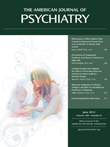Dialectical Behavior Therapy Compared With General Psychiatric Management for Borderline Personality Disorder: Clinical Outcomes and Functioning Over a 2-Year Follow-Up
Abstract
Objective:
The authors conducted a 2-year prospective naturalistic follow-up study to evaluate posttreatment clinical outcomes in outpatients who were randomly selected to receive 1 year of either dialectical behavior therapy or general psychiatric management for borderline personality disorder.
Method:
Patients were assessed by blind raters 6, 12, 18, and 24 months after treatment. The clinical effectiveness of treatment was assessed on measures of suicidal and nonsuicidal self-injurious behaviors, health care utilization, general symptom distress, depression, anger, quality of life, social adjustment, borderline psychopathology, and diagnostic status. The authors conducted between-group comparisons using generalized estimating equation, mixed-effects models, or chi-square statistics, depending on the distribution and nature of the data.
Results:
Both treatment groups showed similar and statistically significant improvements on the majority of outcomes 2 years after discharge. The original effects of treatment did not diminish for any outcome domain, including suicidal and nonsuicidal self-injurious behaviors. Further improvements were seen on measures of depression, interpersonal functioning, and anger. However, even though two-thirds of the participants achieved diagnostic remission and significant increases in quality of life, 53% were neither employed nor in school, and 39% were receiving psychiatric disability support after 36 months.
Conclusions:
One year of either dialectical behavior therapy or general psychiatric management was associated with long-lasting positive effects across a broad range of outcomes. Despite the benefits of these specific treatments, one important finding that replicates previous research is that participants continued to exhibit high levels of functional impairment. The effectiveness of adjunctive rehabilitation strategies to improve general functioning deserves additional study.



